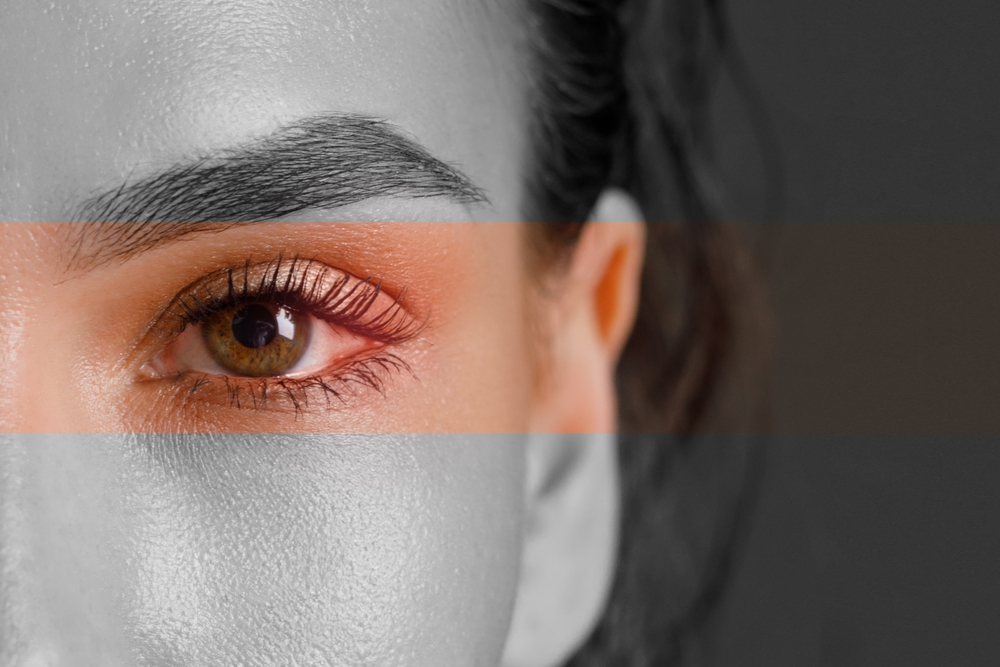
Understanding dry eye is the first step towards managing this condition. It's an issue that should not be overlooked, as it can significantly affect your quality of life. The discomfort it brings can disrupt your daily tasks, including reading, driving, and other activities that require visual concentration.
What is dry eye?
Dry eye syndrome is a common condition that occurs when your tears aren't able to provide adequate lubrication for your eyes. This can happen if you don't produce enough tears or if you produce poor-quality tears. Dry eyes can be uncomfortable, causing a stinging or burning sensation. You may also experience dry eyes if you're unable to close your eyes properly or spend a lot of time looking at digital screens.
What Causes Dry Eye?
Dry eye syndrome can be caused by a variety of factors. For some people, it's simply a part of the aging process. For others, it can be a side effect of certain medications, which can decrease tear production. These medications may include antihistamines, decongestants, hormone replacement therapies, antidepressants, and drugs for hypertension.
Environmental conditions can also lead to dry eyes. Exposure to smoke, wind, and dry climates can increase tear evaporation, resulting in dry eye symptoms. Failure to blink regularly, which usually occurs during certain activities such as computer use or reading, can also contribute to the drying of the eyes.
Lastly, certain medical conditions can lead to dry eyes. These include rheumatoid arthritis, diabetes, and thyroid problems. It's also worth noting that long-term use of contact lenses can be a factor in the development of dry eye syndrome.
What is Meibomian Gland Dysfunction?
One of the more specific causes of dry eye is meibomian gland dysfunction (MGD). The meibomian glands are small oil glands that line the margin of the eyelids. They secrete oil that forms the top layer of the tear film, which helps prevent the evaporation of your tears.
When these glands don't function properly, it can lead to a condition known as meibomian gland dysfunction. This can cause the tears to evaporate too quickly, leading to dry eye syndrome. MGD is considered one of the leading causes of dry eye.
It's important to understand the link between meibomian gland dysfunction and dry eye because it can help in the diagnosis and treatment of the condition. If MGD is the cause of your dry eye, treating the underlying gland dysfunction can help alleviate your symptoms.
Three Common Symptoms of Dry Eye Syndrome
Dry eye can manifest in a number of ways. Here are three common symptoms to look out for:
1. Stinging or burning sensation: This is one of the most common symptoms of dry eye. It can feel as though there's something in your eye causing discomfort.
2. Red Eyes: When your eyes are dry, they can become inflamed, leading to redness. This can also make your eyes feel tired or heavy.
3. Blurred Vision or Eye Fatigue: Dry eyes can affect your vision, causing it to be blurry. It can also lead to eye fatigue, making it difficult to focus for long periods of time.
These symptoms can range from mild to severe, and they may worsen in certain situations, such as on an airplane, in an air-conditioned room, after a few hours at a computer, or after prolonged reading.
When to See an Optometrist for Dry Eye
If you're experiencing persistent symptoms of dry eye, it's essential to see an optometrist. While dry eye might seem like a minor annoyance, it can have serious consequences if left untreated. It can cause damage to the surface of your eyes and impair your vision.
An optometrist can perform a series of tests to diagnose dry eye syndrome. These may include a comprehensive eye examination, a patient questionnaire, a tear film stability evaluation, and an assessment of your tear quantity and quality.
It's crucial not to delay seeking professional help if you're experiencing dry eye symptoms. Early detection and treatment can help prevent complications and preserve your vision.
Taking Charge of Your Eye Health
Dry eye syndrome can be a frustrating and uncomfortable condition, but understanding what it is, its causes, and its symptoms can help you manage it effectively. Regular check-ups with an optometrist and lifestyle adjustments can make a big difference.
To learn more about common symptoms of dry eye syndrome, visit Chan Eye Care at our office in Virginia Beach, Virginia. Please call (757) 430-8800 to schedule an appointment today.








